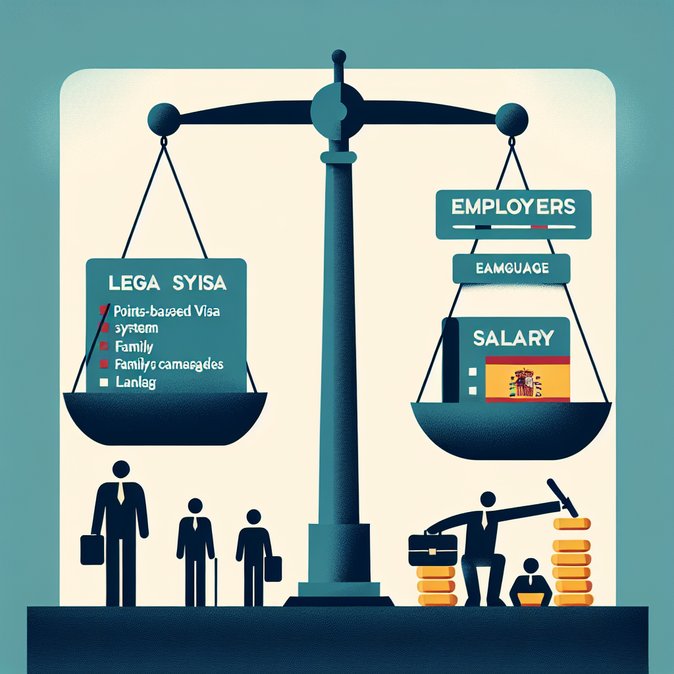
Spain’s upper house has thrown its weight behind a motion from the opposition Partido Popular (PP) to design a points-based immigration system similar to those used in Australia and Canada. The proposal, adopted on 23 October 2025 with 148 votes in favour and 110 against, seeks to rank visa applicants on objective criteria such as sectoral labour shortages, language skills and cultural ‘adaptability’.
Although it is only a non-binding motion, the vote is politically significant. The PP controls the Senate and is polling ahead of Prime Minister Pedro Sánchez’s PSOE for the 2027 election. By embracing a merit-based model, the party hopes to staunch the flow of votes to the far-right Vox, which has made tighter migration controls a core campaign plank. During the debate, PP senator Miriam Bravo argued that Spain needs “responsibility and efficacy” at the borders and called for a single national migration authority as well as faster deportations of irregular migrants.
Business groups are split. The Spanish Confederation of Business Organisations (CEOE) welcomed the idea of matching visas to real labour shortages in construction, hospitality and elder care, but warned that overly rigid quotas could backfire if the economy slows. NGOs such as CEAR and Red Acos argued that the points model risks excluding low-skilled workers who already fill vital jobs and could complicate family-reunification routes.
For multinational employers the main takeaway is uncertainty: a future PP-led coalition may overhaul Spain’s current regime, which mixes EU free-movement rules, national quotas and flexible ‘arraigo’ regularisation pathways. Companies that rely on third-country national talent should therefore monitor the PP’s forthcoming draft bill and prepare for new documentation requirements, language tests and possibly higher salary thresholds.
In practical terms no rules change immediately—the Sánchez government retains power over the Immigration Act and continues to champion its own reforms to regularise undocumented workers. But the Senate vote shows that Spain’s migration consensus is fracturing, and global mobility teams should budget extra lead-time for Spanish work permit planning after 2026.
Although it is only a non-binding motion, the vote is politically significant. The PP controls the Senate and is polling ahead of Prime Minister Pedro Sánchez’s PSOE for the 2027 election. By embracing a merit-based model, the party hopes to staunch the flow of votes to the far-right Vox, which has made tighter migration controls a core campaign plank. During the debate, PP senator Miriam Bravo argued that Spain needs “responsibility and efficacy” at the borders and called for a single national migration authority as well as faster deportations of irregular migrants.
Business groups are split. The Spanish Confederation of Business Organisations (CEOE) welcomed the idea of matching visas to real labour shortages in construction, hospitality and elder care, but warned that overly rigid quotas could backfire if the economy slows. NGOs such as CEAR and Red Acos argued that the points model risks excluding low-skilled workers who already fill vital jobs and could complicate family-reunification routes.
For multinational employers the main takeaway is uncertainty: a future PP-led coalition may overhaul Spain’s current regime, which mixes EU free-movement rules, national quotas and flexible ‘arraigo’ regularisation pathways. Companies that rely on third-country national talent should therefore monitor the PP’s forthcoming draft bill and prepare for new documentation requirements, language tests and possibly higher salary thresholds.
In practical terms no rules change immediately—the Sánchez government retains power over the Immigration Act and continues to champion its own reforms to regularise undocumented workers. But the Senate vote shows that Spain’s migration consensus is fracturing, and global mobility teams should budget extra lead-time for Spanish work permit planning after 2026.






